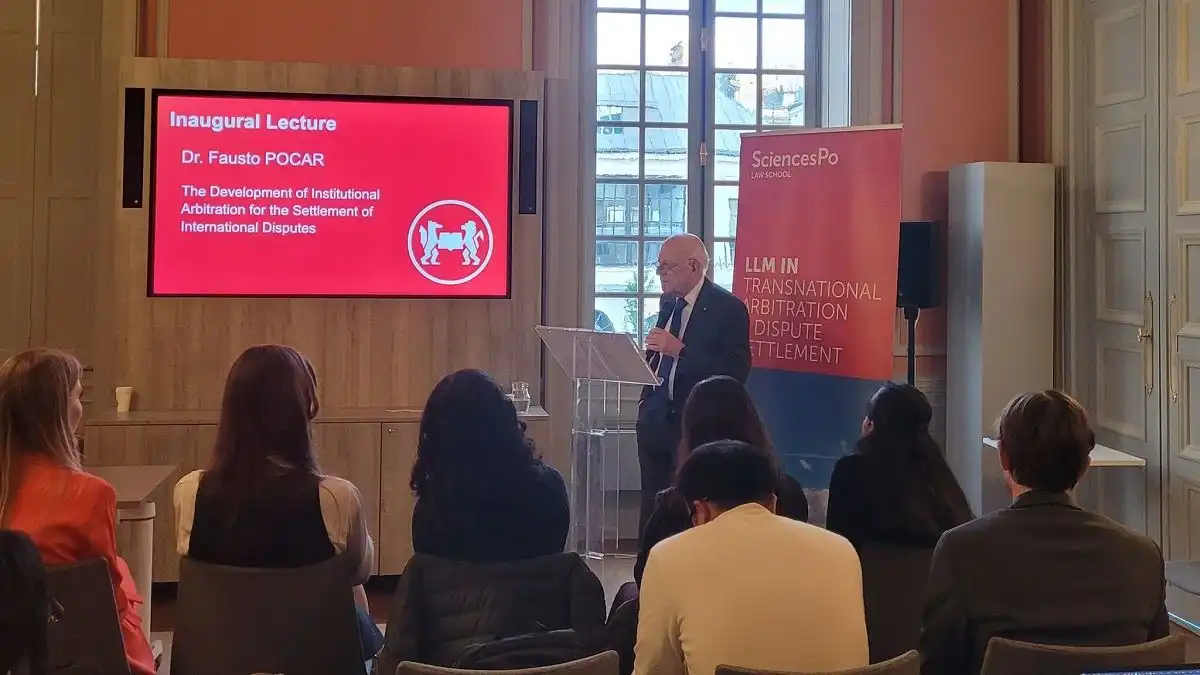Home>"The Development of Institutional Arbitration for the Settlement of International Disputes" by Professor Pocar Fausto
28.11.2024
"The Development of Institutional Arbitration for the Settlement of International Disputes" by Professor Pocar Fausto
On 13 September 2024, as part of the 2023-2024 LLM in Transnational Arbitration and Dispute Settlement (TADS) Graduating Ceremony, Professor Fausto Pocar gave a keynote lecture on the development of institutional arbitration for the settlement of international disputes. The goal was to connect all forms of arbitration and acknowledge the 125th anniversary of the Permanent Court of Arbitration (PCA).
He explained that the modern international community is a system of states that came into being after the thirty-years’ war that excluded the priority of any judicial approach to dispute settlement because it would require a more sophisticated structure rather than simple state sovereignty. Professor Pocar recalled that until the recent UN Chart ban, the settlement of disputes by war was a solution if other means were not effective and that modern scholars consider arbitration as the most effective means of maintaining peace.
After referring to the origins of arbitration and its evolution, he recalled that ad hoc arbitrations allow setting up an arbitral tribunal able to deal with specific cases. The Professor explained that due to the large developments in transnational commercial arbitration, the PCA ended up adopting and adapting rules from it such as UNCITRAL. So, today the same rules are applied to international arbitration between state and private as well as private and private parties.
Professor Pocar also alluded to the role of arbitration as a tool to solve post-war problems as in the case of Eritrea-Ethiopia claims and boundary commissions. Arbitration remains the basis of dispute settlement. He pointed out that even if States go to ICJ access to it is limited based on the restrictive consent given to it and the requirement, of exhaustion of other remedies with some exceptions such as the Genocide Convention.
Fausto Pocar concluded that, overall, the judicial system does not seem effective and, therefore, it may be better to go back to the foundations and conduct arbitration for the purpose of settlement of disputes.
By Ani Harutyunyan, TADS LLM Candidate
